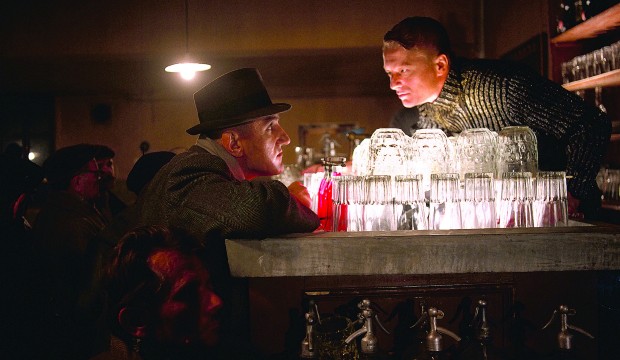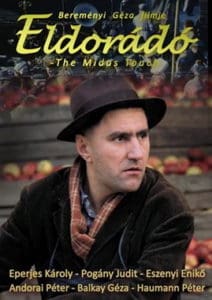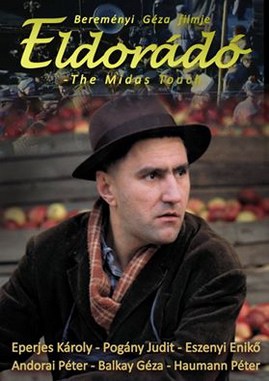Eldorádó (The Midas Touch 1988 is the second film directed by Géza Bereményi. At the time, he was primarily known as a scriptwriter, most notably for Péter Gothár’s masterful Time Stands Still (Megall az idö 1982). The story takes place in Budapest from the end of WWll until 1956. Sándor Monori (Károly Eperjes) is the “King of the Teleki Square market”, which basically means he controls the business there. The market is located in the notorious 8th district, which for many years had such a bad reputation that it spawned the film Nyócker (The District 2004), which shows the neighbourhood full of gangsters, prostitutes and pimps. When this film was set, it was already seen as a shady area.
For Monori, money and gold are everything, and he believes that anything can be bought with said currencies, regardless of the law. He is proven right since he very successfully runs his business with blackmail and other coercion methods. He is ruthless and won’t take no for an answer. He is still not portrayed as a simplistic monster. The protagonist is actually based on the director’s own grandfather, and several other characters are drawn from childhood memories, as well. This was also the case with Time Stands Still, even though that work started with the 1956 events rather than ended with them. Many of the themes in the film can also be traced back to Bereményi’s earlier short stories.

The riches of Eldorádó
In a way, Monori becomes emblematic of Hungary and how society changed the more communism took over. In an early scene, his grandson catches diphtheria, which would typically be a death sentence. Monori refuses to accept the facts, goes to the hospital with some gold, and basically seems to make a deal with some powers to buy his grandson’s life. The sequence is one of the most famous in the film, not least because of the cinematography by Sándor Kardos, who is in many ways the real star of the film. The inventive lensing manages to be objective and simultaneously dreamlike and surrealistic. He worked on several essential films with András Jeles 1László Nemes’ father., Péter Tímar and other directors.
When society gradually changes, Monori will have less and less room to manoeuvre. The more communism takes over, the less money and gold matters, and nepotism and a party book become the new relevant currency. An unintended irony was that Eldorádó was released merely a year before another societal change, which changed Hungary really fast. Once again, people had to adapt to a completely new situation, even though Hungary had already taken baby steps towards capitalism with domestic private companies and foreign brands like Adidas and Mcdonald’s, as well. There was even a small stock market in place already during the eighties, but capitalism changed most of those structures faster than in other Eastern European countries.
Eldorádó was a huge success and won The Hungarian Film Week’s big prize. It was screened at the Venice Film Festival, and Bereményi won the European Film Award as best director. Even though he made other films, such as the expensive, state-funded prestige project The Bridgeman (A Hidember 2002), this is the film that the director is remembered for, even abroad. There was even a screening of the film at the Stockholm Cinematheque, with Bereményi attending. The same year, the film was broadcast on Swedish state television. It is, without doubt, one of the highlights of Hungarian cinema of the eighties. Eldorádó is available on Filmio for a small fee. It is highly recommended.
Eldorádó by Géza Bereményi - The Disapproving Swede Brilliant

Director: Geza Bereményi
4
Pros
- Strong story
- Brilliant cinematography
- A strong performance by Károly Eperjes.

